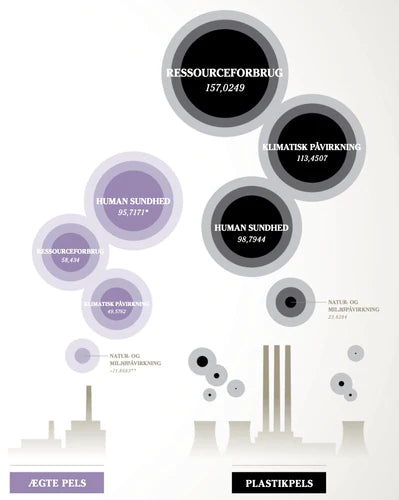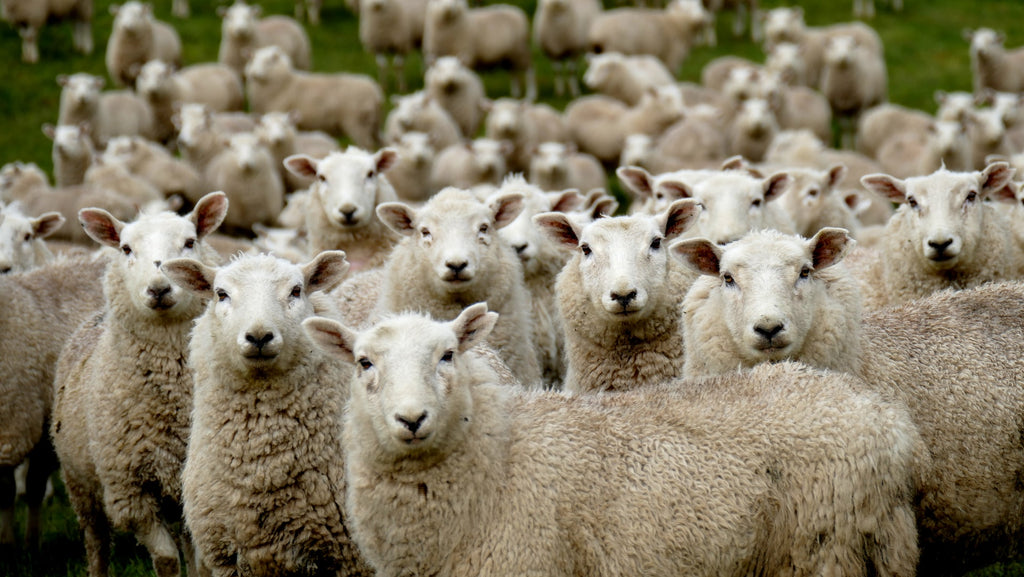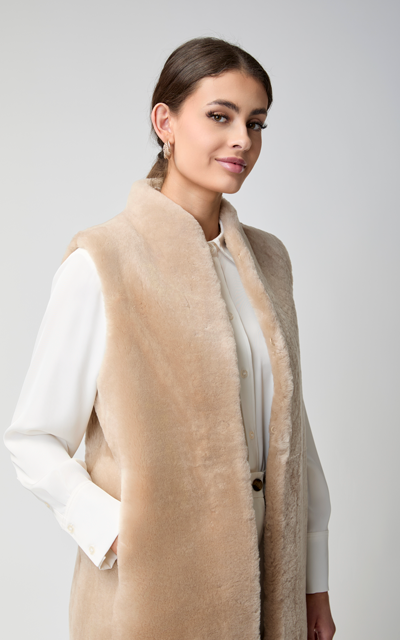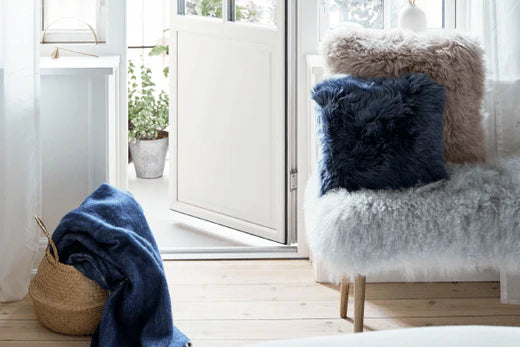
Fur vs. plastic
A very popular question in the fashion industry at the moment is whether real fur or faux fur is more sustainable. At NATURES Collection we carefully select the materials we use for our products and in our collaboration with Kopenhagen Fur, we make sure that the process is as sustainable as it can be – and that is a lot. Denmark has one of the strictest environmental laws in fur trade in the world and often serves as an example for other fur producing countries.
Kopenhagen Fur is the world’s largest and leading fur auction house and owned by the Danish Fur Breeders. When the fur is bought, they go to their carefully selected dressing houses, where the furs are processed. These dressing houses are supervised by Kopenhagen Fur to makes sure, that they are sustainable and that they live up to their certifications, FURMARK and WELFUR. They also keep finding new ways to make the process even more sustainable.

Faux fur, on the other hand, is made of plastic. We all know, that plastic is not the environments best friend. So, maybe it is really a matter of principle? You are either pro natural fur or not. We have dug into this issue, to make it a bit clearer for you. Because we know, how much misleading information there is out in the world wide web.
Why wear something that looks like fur, when you are against it?
Like we have already stated, being pro or against natural fur might be more a matter of principles than truth. Before you make the decision whether or not to be pro natural fur, you could compare it to whether or not you are vegan. We see these things as two choices that are inextricably linked to each other. Think of it this way; You can wear fur with a clear conscience like when you eat meat - or choose to do neither of them. To us, they are the exact same thing. The welfare of the animals is the same and the purpose as well. Our products are made of bi products to the meat industry, which means that the animals have already been used for meat. We take over and use the skin, that would have been wasted. Our products are also made of breeding, like minks. Minks live in farms with high welfare, that is constantly researched and optimized.
You can read more about how Danish minks live, if you click here.
You wish to protect animals but end up hurting both the planet and nature.
When you wear our fur, you contribute to minimize waste by wearing something that would have been tossed out from the meat factories and you wear something that can biodegrade itself in nature. This is an amazing quality about fur, but it is unfortunately also very misunderstood. When people buy faux fur, they believe that they have made a huge difference to protect the animals. But they do not consider, that they are hurting the planet so much more.
When wearing a faux fur, it will shed as much as a natural one. This does not make it more life-like. Instead, it poses a great threat to the environment. When a faux fur, which is made of plastic, sheds into the world, it adds these little uncontrollable fibers into the world and into the ocean, where the fish thinks it is food. And we all know how that story ends.
The fur industry has also been blamed for being bad for the environment through the years. This is actually not true. Many sites write and tell people, that the toxic and carcinogenic chemical Chromium VI and formaldehyde is used when processing fur. It is very important to us to emphasize, that this is false. In the process of processing fur, we use chromium III, which is a natural occurring heavy metal, that is found in stones, animals, plants and so on. It is often confused with the chemical chromium IV, but it is not the same. In general, the dressing factories are constantly implementing new and more sustainable methods when processing fur.
The chemical formaldehyde is also in its way out and will be banned by The International Federation of Dressers and Dyers. Faux fur, on the other hand, is chemically based. It is made of synthetic plastic fibers made of petroleum. This is, as the opposite to natural fur, neither environmentally good nor sustainable. It is a resource, that cannot be degraded.

Many sites that are promoting faux fur say, that it is made of recycled water bottles. This sounds great and very sustainable, but it is really not. Plastic will be plastic. It cannot degrade itself in nature, like natural fur can.
Take the battle against climate change seriously – wear sustainable clothes
As we have shown above, there are many environmental advantages in wearing natural fur. With our clothes, you can both be sustainable, environmentally good and comfortable. Fur is processed very thoroughly today and research on the area has made it possible to process it, so it is as flexible as regular clothes. The only difference is, that it is much more durable than plastic.
Another thing is, that the quality of faux fur is significantly lower than the quality of real fur. Natural fur is warm and can regulate temperature. Faux is an artificial textile made of plastic and therefore cannot. Natural fur is much more comfortable, because it is natural. Of course, we know, that not everyone can afford to wear all-natural materials, but to support our planet and nature, we should all begin somewhere. You can start by switching your plastic coat into a natural one. Read our jacket guide and find out which one is perfect for you!





